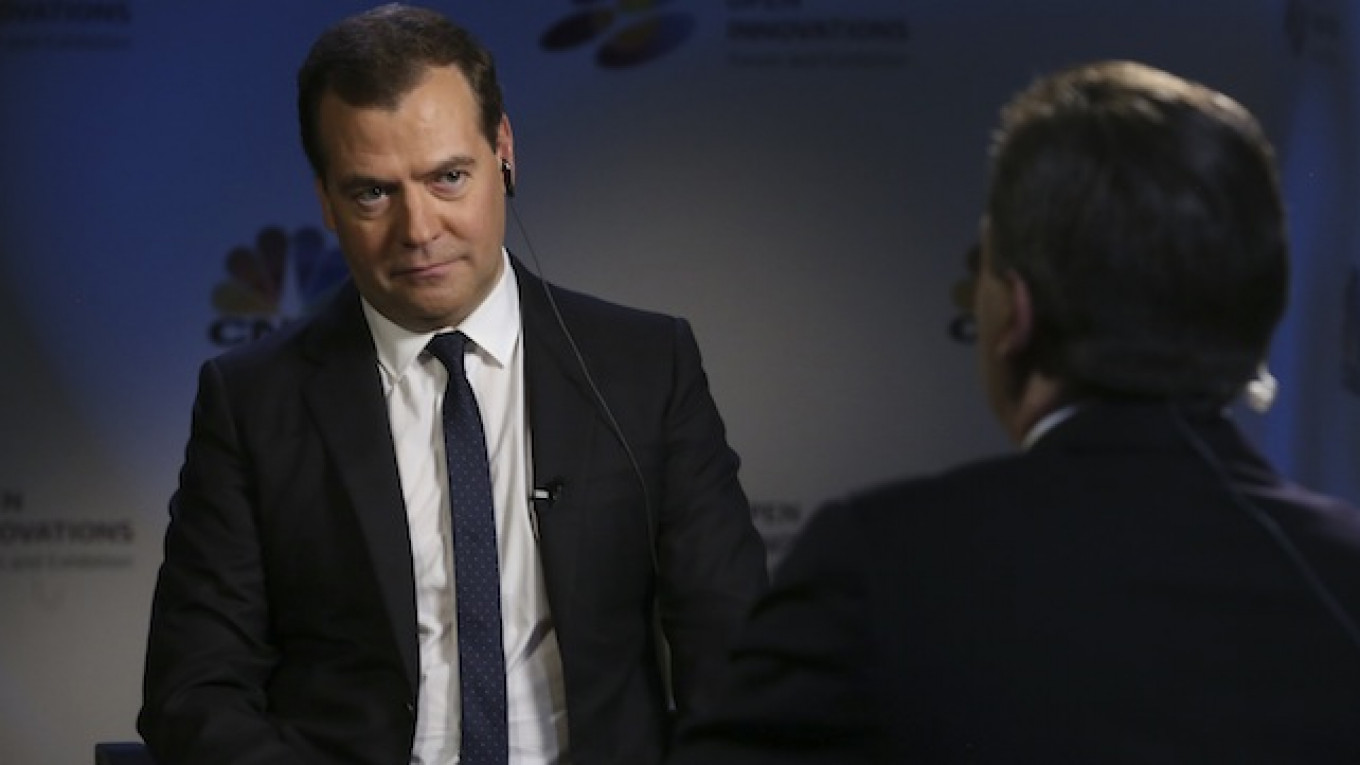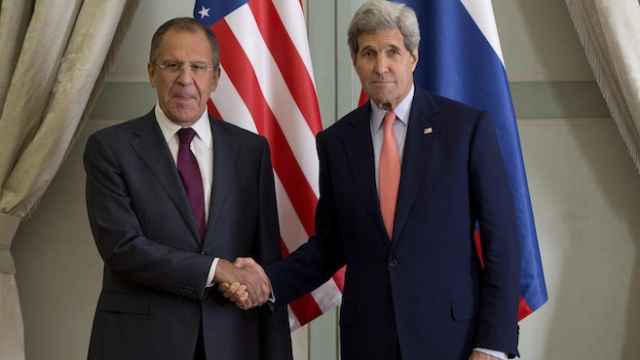Russian Prime Minister Dmitry Medvedev has suggested that U.S. President Barack Obama is suffering from a "mental aberration" after the American leader said Russia posed a greater threat to his country than the Islamic State.
"It's sad to hear President Obama say in an address at the UN that the threats and challenges facing humanity are in this particular order: the Ebola virus, the Russian Federation and only then the Islamic State," Medvedev said in an interview published Wednesday by U.S. television channel CNBC.
"I don't want to dignify it with a response. It's sad, it's like some kind of mental aberration," he added.
The militant Islamic State has become notorious this year after executing several Western journalists and aid workers. The fundamentalist group has claimed large swathes of territory in Iraq and Syria and has threatened both the U.S. and Russia in public speeches.
U.S. Secretary of State John Kerry and Russian counterpart Sergei Lavrov on Tuesday met in Paris for talks and agreed to share intelligence on Islamic State militants.
"We both recognize the need to destroy and ultimately defeat IS, to degrade their efforts and ultimately to defeat them," Kerry was quoted as saying by the Reuters news agency.
Medvedev, speaking to CNBC, also addressed comments made by Australian counterpart Tony Abbott, in which he said he would "shirtfront" Putin at an upcoming G20 leaders summit over the "murder" of 38 Australians aboard a Malaysian airliner downed over eastern Ukraine this summer. The West has accused Russia of backing the separatists believed to have shot down the plane.
"If [Abbott] likes to speak using sports terms — be my guest," Medvedev said. "[But] any serious politician should be very careful what he says."
A Message from The Moscow Times:
Dear readers,
We are facing unprecedented challenges. Russia's Prosecutor General's Office has designated The Moscow Times as an "undesirable" organization, criminalizing our work and putting our staff at risk of prosecution. This follows our earlier unjust labeling as a "foreign agent."
These actions are direct attempts to silence independent journalism in Russia. The authorities claim our work "discredits the decisions of the Russian leadership." We see things differently: we strive to provide accurate, unbiased reporting on Russia.
We, the journalists of The Moscow Times, refuse to be silenced. But to continue our work, we need your help.
Your support, no matter how small, makes a world of difference. If you can, please support us monthly starting from just $2. It's quick to set up, and every contribution makes a significant impact.
By supporting The Moscow Times, you're defending open, independent journalism in the face of repression. Thank you for standing with us.
Remind me later.






